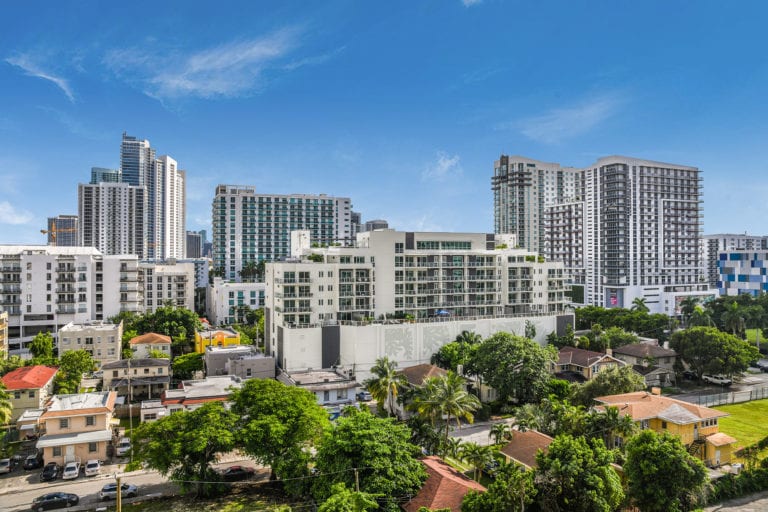The Federal Government has enacted the Coronavirus Aid, Relief, and Economic Security (CARES) Act providing critical emergency assistance to small and midsize businesses to help them survive in the short term and emerge from the economic disruption once this pandemic has subsided. You may find the following summary of impacts helpful to your business.
SBA 7(a) Loans (Paycheck Protection Program)
The CARES Act expands the Small Business Administration’s (SBA) existing 7(a) loan program to help eligible businesses pay rent, mortgage payments, payroll (including paid sick or medical leave), health benefits, insurance premiums and certain other operational costs. Loan amounts may be forgiven under the expanded program subject to certain conditions (as further described below).
SBA Loan Terms and Size – The bill will allow the SBA, either directly or in cooperation with the private sector, to provide federally-backed “7(a) loans” to eligible businesses of up to 2.5 times their average monthly payroll cost, with a maximum loan size of $10,000,000. The interest rate for the new 7(a) loans cannot exceed 4% and no collateral or personal guarantees will be required. The government will guarantee 100% of all 7(a) loans through the end of 2020, following which the guarantee percentages will return to 75% for loans above $150,000 and 85% for loans of $150,000 or less. All loan fees will be waived with no penalties for prepayment through the end of the year and loan recipients will receive complete deferment of all principal and interest payments for six months to one year.
SBA Loan Eligibility – Under the existing SBA regulations, business eligibility for 7(a) loans is limited by size standards based on either number of employees or average annual gross receipts. The expanded SBA program covers businesses with fewer than 500 employees (including those employed full-time, part-time or on other basis), unless the SBA size standard for the covered industry allows more than 500 employees. While the existing SBA regime provides that employees of affiliates are counted in determining number of employees, as applied to hotels and other hospitality businesses, the CARES Act provides that (i) a business will be eligible if it employs fewer than 500 employees per physical location so long as it is assigned to the “accommodation and food services” sector (with a North American Industry Classification System code beginning with 72); and (ii) the affiliation rules are waived with respect to any business with a North American Industry Classification System code beginning with 72 and any franchise business assigned a franchise identifier code by the administration. Thus, as long as they are owned by separate entities, separate properties with less than 500 employees are eligible for SBA loans.
Loan Forgiveness – 7(a) loan recipients under the bill will be entitled to loan forgiveness in an amount equal to the sum of all payroll costs, interest payments on any covered mortgage, payments on any covered rent obligations and any covered utility payment, in each case, for the covered eight-week period after origination of the loan. Upon forgiveness, the SBA will remit to the applicable lender within 90 days the amount forgiven plus accrued interest through the date of payment. In addition, businesses with tipped employees can get debt forgiveness on any additional wages paid to those employees between March 1, 2020 and June 30, 2020. Loan forgiveness amounts will be reduced by a percentage corresponding to any full-time employee reductions between January 31, 2020 and December 31, 2020 (“Covered Period”) and the amount of any salary or wage reductions of greater than 25% for certain employees (with an exception for employees re-hired or whose salary or wages are restored by June 30, 2020). Any loan amounts forgiven under the program would not result in cancellation of indebtedness income for tax purposes.
Tax Provisions
50% Employee Retention Credit for Employers Closed Due to COVID-19 – The CARES Act would provide eligible employers with a refundable payroll tax credit equal to 50% of certain “qualified wages” (including certain health plan expenses) paid to its employees beginning March 13, 2020 through December 31, 2020 if the employer is engaged in an active trade or business in 2020 and the wages are paid:
• While operation of that trade or business is fully or partially suspended due to a governmental order related to COVID-19; or
• During the period beginning in the first quarter in which gross receipts for that trade or business are less than 50% of gross receipts for the same calendar quarter of 2019 and ending at the end of the first subsequent quarter in which gross receipts are more than 80% for the same calendar quarter of 2019.
The credit is capped at $5,000 (50% of the first $10,000 of qualified wages) per employee for all calendar quarters. The employee retention credit is available for employers with more than 500 employees, but for employers with more than 100 employees, the credit is available only with respect to wages paid to an employee that is not providing services due to COVID-19-related circumstances and will not be available to employers who have had indebtedness forgiven under SBA 7(a) loans (described above).
Payroll Tax Payment Extensions – The CARES Act would postpone the deadline for payment of the employer portion of the 6.2% employer share of the FICA tax (but not the 1.45% employer share of the Medicare tax) from the date of the bill’s enactment through the end of 2020. The deferred amounts would be payable over the following two years, with 50% payable by December 31, 2021 and the remaining 50% by December 31, 2022.
Here are a few helpful links to find out more information on these and other programs:
1. https://www.jobcreatorsnetwork.com/cares-act-questions-answers/
2. https://www.uschamber.com/co/start/strategy/cares-act-small-business-guide



